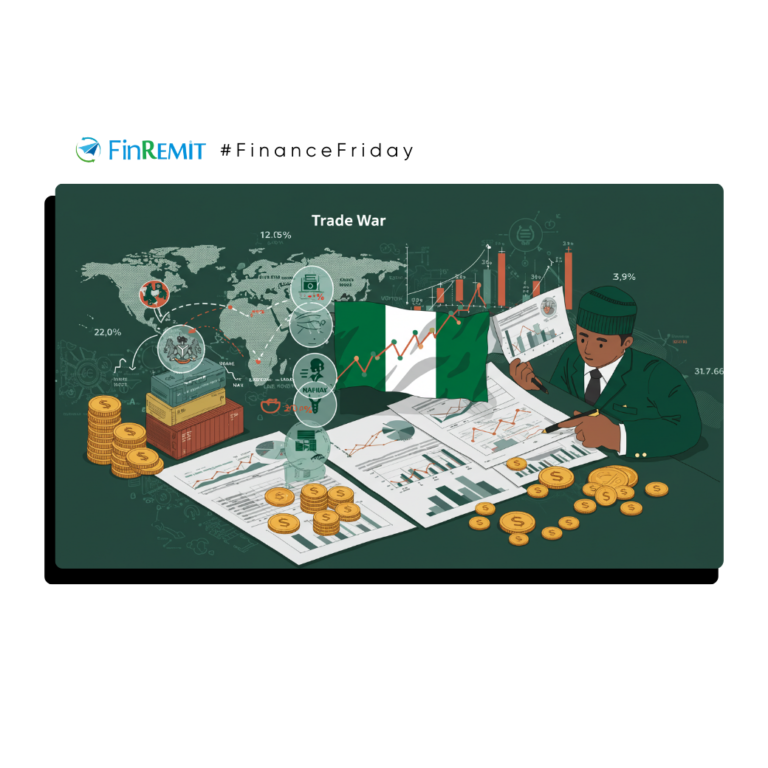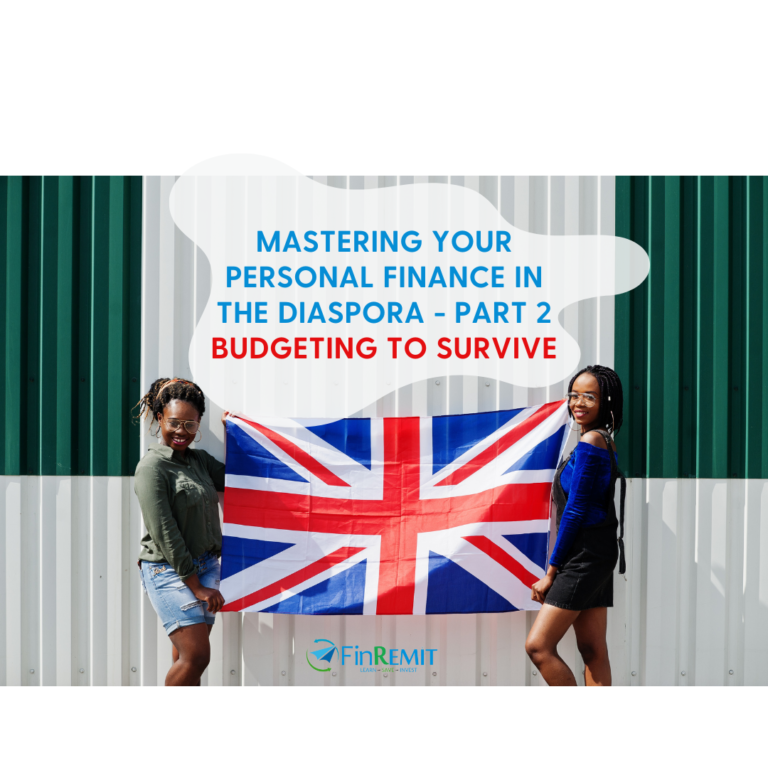Navigating Nigeria’s Financial Landscape in 2025

Macroeconomic Whirlwind in 2025
Nigeria’s economy has been on a rollercoaster ride (think wilder than an okada in Lagos traffic). After a turbulent 2024, inflation is finally showing signs of cooling — at least on paper. Annual inflation rose to its highest level in 28 years last year, peaking around 35% in December 2024. The surge was driven by bold policy moves from President Bola Tinubu, who ended long-standing fuel subsidies and let the naira weaken to more realistic levels. By January 2025, the National Bureau of Statistics rebased its price index (updating the “basket” of goods), and suddenly the official inflation rate dropped to 24.48%, easing further to 23.18% in February 2025. In other words, prices are still climbing but at a slower pace than before.
The Naira’s wild ride has also taken center stage. Pegged artificially for years, the Naira was set free in mid-2023 and immediately went on a steep slide. In early 2023, a dollar cost around ₦450–500; by late 2024 it had spiraled to nearly ₦1,600 per $1, effectively losing about 70% of its value. The Central Bank of Nigeria removed forex trading restrictions and unified multiple exchange rates, which initially sent the Naira tumbling. By 2025, the Central Bank is touting “improved stability” in the FX market, but the Naira remains far weaker than a year ago.
On the growth front, Nigeria’s GDP expanded to about 3.4% in 2024, the fastest pace in three years. That’s a solid uptick from 2.7% in 2023, but still well below the government’s ambitious 6% target. In short, the macroeconomic picture in 2025 is a mix of cautious optimism and lingering challenges — inflation is down from its peak, the Naira is hopefully on a steadier course, and economic growth is inching up, albeit from a low base.
A Nation Gripped by Economic Pressures
If you’ve felt the cost of living shoot through the roof, you’re not alone. Nigerians are still grappling with what is one of the worst cost-of-living crises in recent memory. The end of fuel subsidies in 2023 has caused petrol prices to more than quadruple, reaching ₦930 per liter in Lagos and ₦960 for residents in the northern part of the country. This means higher transport fares and steeper costs for businesses running generators to keep the lights on. And a plunging currency (which made all imports pricier) and you have a recipe for expensive everything — from food to school fees. Officially, inflation might be moderating, but everyday Nigerians will tell you many prices haven’t reversed. For instance, a 50kg bag of local rice cost around ₦37,000 in September 2023, but by September 2024 it was over ₦97,000 — roughly a 153% jump in one year alone.
While costs skyrocket, incomes have struggled to keep up. Most people’s salaries are not rising anywhere near fast enough to match inflation. Although the National minimum wage has been increased to ₦70,000 (about $43), it barely covers a week’s basic groceries in many cities. The Naira’s plunge means even those lucky enough to get pay raises are often earning less in real terms. Faced with this reality, Nigerians are cutting out non-essentials, carpooling or taking public transport more, and generally finding more creative ways to stretch each Naira. It’s a classic case of tightening belts, even as the cost of the belt keeps rising.
The Squeeze on Savings
All these economic pressures have put a dent in the savings culture. For many households, saving money feels about as feasible as balancing a tray of eggs on a danfo bus —shaky and likely to crack. A recent report by fintech firm PiggyVest highlighted a worrying trend: only 57% of Nigerians saved any money in 2024, down from 64% in 2023. In other words, fewer people can afford to set something aside at the end of the month. Even among those who do save, almost half admitted they can’t save consistently each month. The reason isn’t a mystery, with skyrocketing prices and stagnant incomes, many have shifted into survival mode, prioritizing daily expenses over savings. In fact, some experts argue that stashing money in a savings account right now hardly makes economic sense when inflation is outpacing interest earnings. If the cost of living is rising at approximately 24% a year and your bank savings yield far less, parking cash under the mattress or even in the bank means watching its value erode.
That said, the instinct to save hasn’t disappeared entirely, it’s just being recalibrated. People are finding new ways to build emergency funds or pay for needs like rent and school fees. Digital savings platforms and cooperative societies (Ajo & Esusu) remain popular, as they often force a saving discipline or give slightly better returns than basic accounts. Still, the overall mood is that saving is a luxury when daily costs demand every Naira. As Odun Eweniyi, COO of PiggyVest, put it, the high cost of living makes it “increasingly difficult for the average Nigerian to allocate funds for savings after covering essential expenses”. Until inflation cools further or incomes rise, expect Nigerians to continue focusing on bare necessities first and treating any savings at all as an achievement.
Rethinking Investment Strategies
If there’s a silver lining to economic turmoil, it’s that it forces people to rethink their investment strategies. In 2025, Nigerians are getting ever more resourceful about where to put their money to beat inflation and preserve wealth. With the stock market and real estate offering mixed results, many are exploring alternatives. One tech professional shared a cautionary tale: she bought a plot of land in 2022 for ₦30 million as an investment and recently got an offer for ₦55 million – normally a tidy 83% gain. But after crunching the numbers, she realized that in real terms her land’s value had “barely increased” once adjusted for inflation and the Naira’s drop. In fact, despite the ~22% annual nominal return, she effectively lost money when you consider how much prices and the dollar rate rose in the same period.
Many Nigerians are thus seeking safe havens for their money. One strategy gaining traction is investing in dollar-denominated assets. For example, that same investor noted that if she had put her ₦30 million into a dollar mutual fund back in 2022, even with a modest 6% annual return, she would now have about $44,000 which thanks to the depreciation of the Naira, would be roughly ₦72 million today. In hindsight, a low-risk dollar investment would have outperformed a flashy real estate deal by a long shot. Stories like this are fueling interest in foreign mutual funds, eurobonds, and even cryptocurrencies as a hedge against Naira’s weakness. Wealth-tech platforms and fintech apps have boomed, offering Nigerians access to U.S. stocks, crypto, and high-yield savings in dollars or other stable currencies. While these aren’t risk-free (crypto volatility can make the naira look stable by comparison), the appeal is clear: diversify and hedge against local economic swings.
From Big Picture to Personal Pockets
Overall, Nigeria’s financial landscape in 2025 is a mixed bag of hard truths and cautious hope. On the macro side, the government’s reform agenda has stabilized some indicators — inflation is inching down, the Naira is finally reflecting reality, and GDP is growing (albeit not fast enough). Global analysts and institutions like the World Bank say Nigeria could “reap the benefits” of these tough reforms in time. But on the micro side, the everyday economy of you and me, Nigerians are still in the thick of it. The cost of living remains extremely high, personal finances are under strain, and the average person has to become something of an amateur economist just to navigate daily life.
As we navigate 2025, one thing is clear: financial literacy and adaptability have never been more crucial. The landscape is challenging, but Nigerians are nothing if not resourceful. Whether it’s optimized spending, hunting for high-yield investments, or simply finding laughter in the hardship, people are finding ways to cope. The hope is that the government’s moves — however painful in the short term— eventually set the stage for a more stable economy where the average person can actually get ahead, not just struggle to stand still. until then, keep your seatbelts fastened (economically speaking), stay informed, and hopefully: This financial storm too shall pass.




